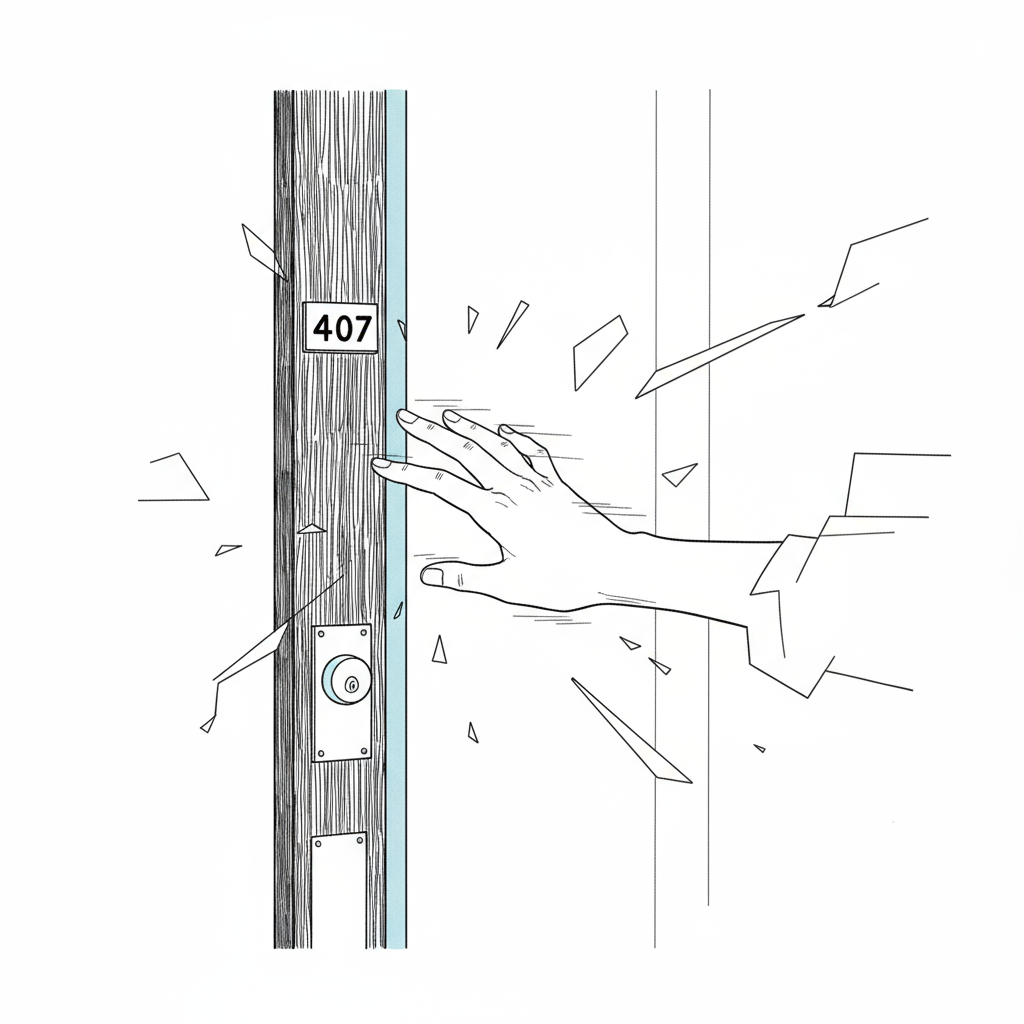Her hand hovers six centimeters from the doorframe. Has been hovering. Akane calculates the distance because precision is all she has left. Six centimeters between bare skin and bare wood. The gap where choice lives.
She's stood here long enough that the building's proximity alarm stopped chirping. Long enough that the overhead sterilization field cycled off. Long enough that certainty dissolved.
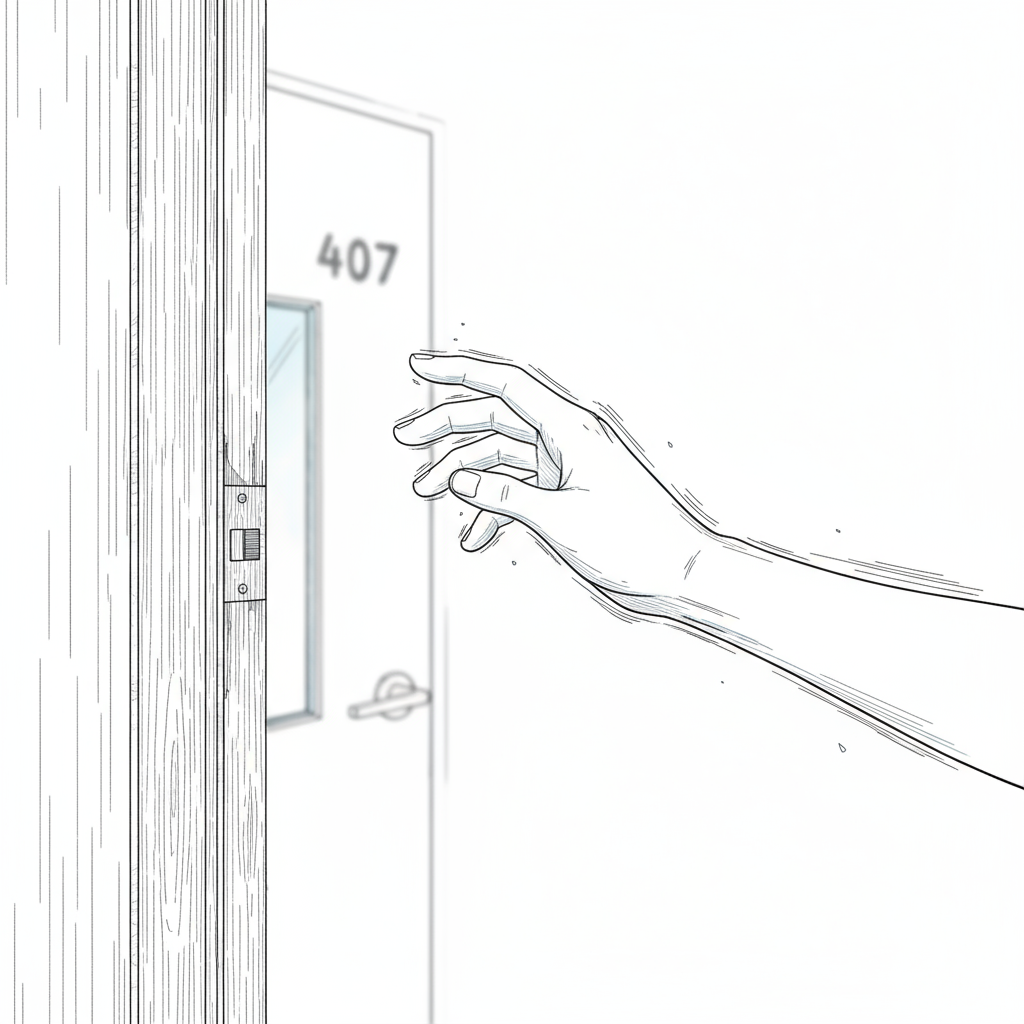
Three Days Earlier
Subject maintains isolation protocol, Day 1,847. Zero physical contact. Zero contamination vectors. Psychological stability within acceptable parameters.
Akane types this into her research log with gloved hands, same as every evening. Her apartment occupies the top floor of a converted office building in Minato-ku—maximum distance from street-level contact risks. Five years documenting perfect isolation. Tokyo's most successful zero-contact study.
She removes her gloves with practiced precision. Left hand first, pinching the right wrist. UV pulse. Confirmation chime.
And then: cherry blossoms.
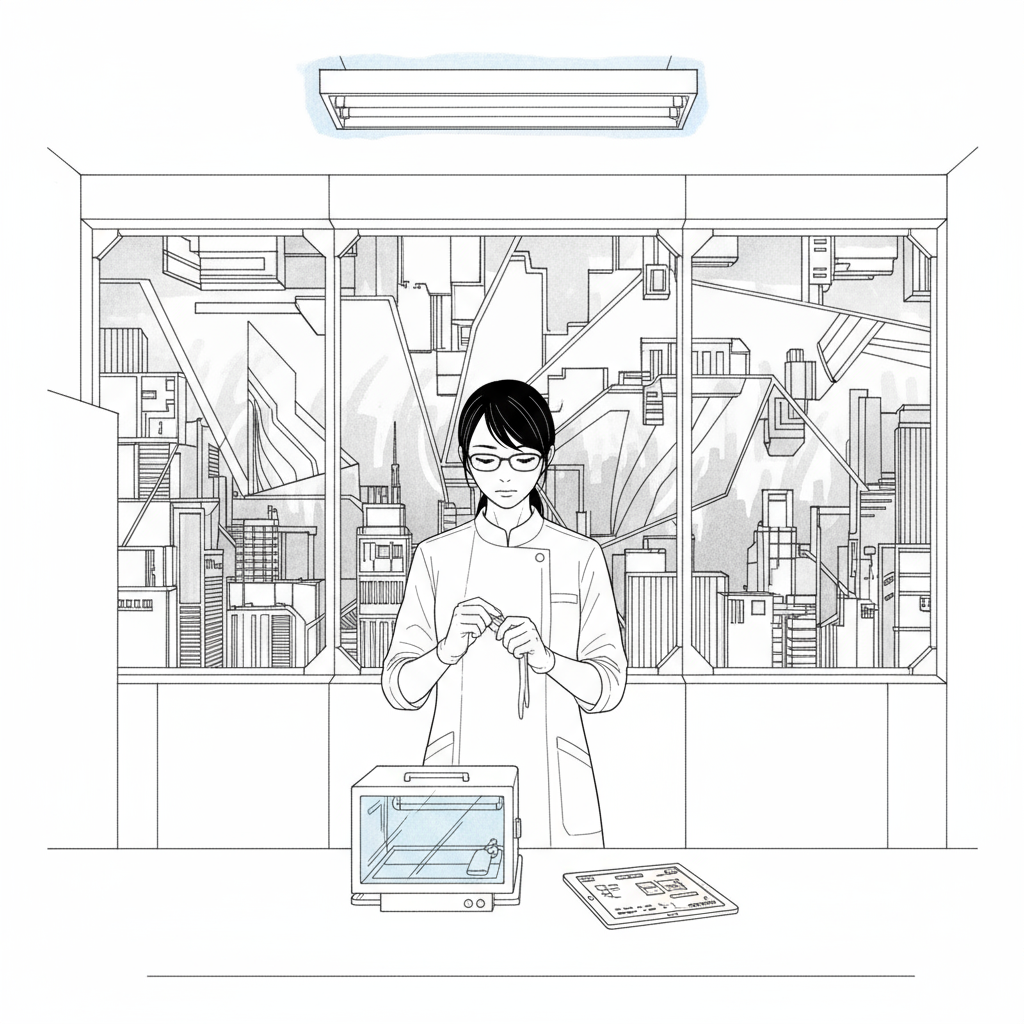
She hasn't smelled cherry blossoms in five years. But this scent fills her apartment—petals on warm concrete, sweet rot of trampled flowers, train-station ozone.
You smell cherry blossoms. You've been waiting on the platform for twenty-three minutes. They're late, but you knew they would be. Always seven minutes late for three years. You arrive fifteen minutes early because hope is a habit you can't break. The blossoms are early this year. Or you're noticing them because you want them to mean something about survival.
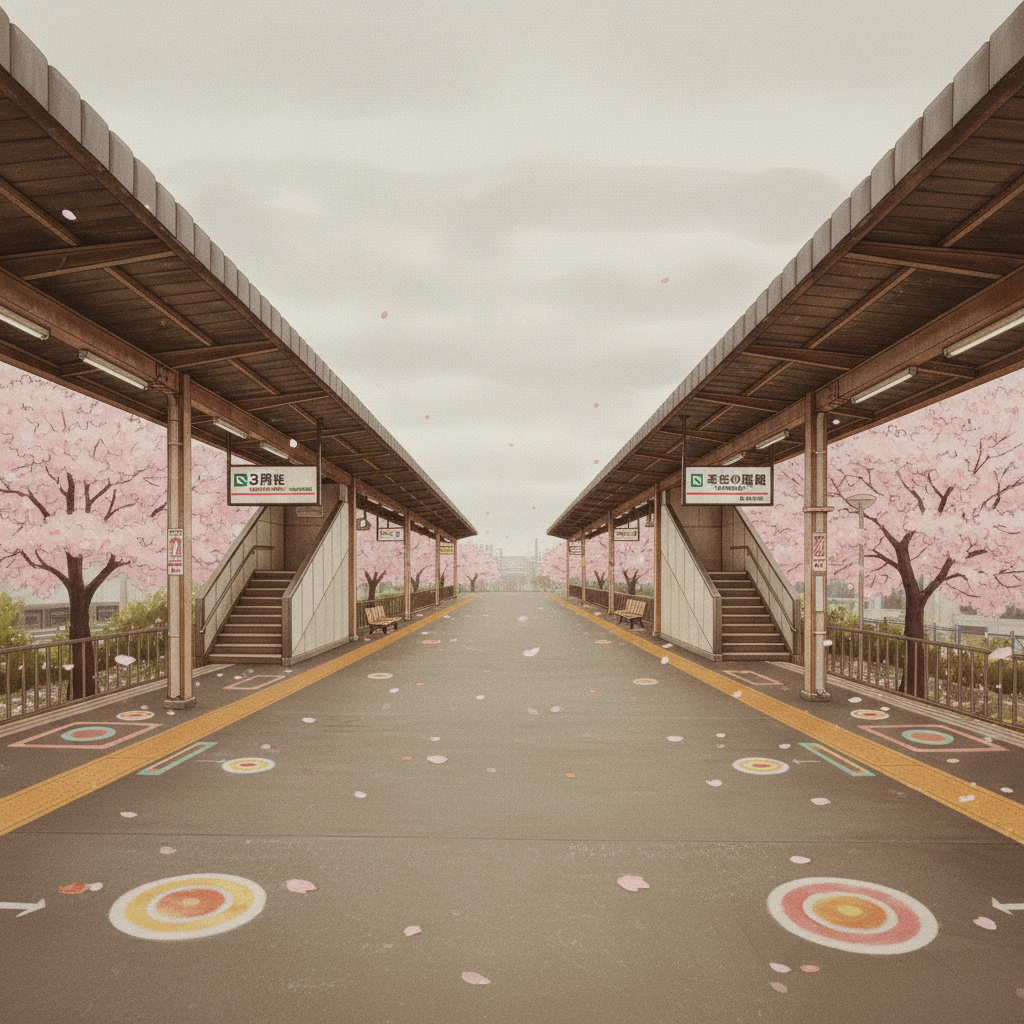
Akane gasps—her own breath—and the memory fractures.
Subject experienced involuntary memory fragment at 19:42. Source unknown. This should not be possible.
Her hands shake too much to finish typing.
Forty-seven minutes to review seventy-two hours. Every surface touched, every delivery received, every millimeter of exposure. Grocery delivery: contactless, irradiated. Archive files: digital, decontaminated. Building maintenance: none scheduled.
The cherry blossoms persist at the edge of awareness. Not scent—presence. Someone else's longing taking residence in her consciousness.
Yesterday's case files. One new entry: Sato, Kenji. Male, 41. Zero-contact fatality. Body discovered after six weeks. Memory residue on multiple surfaces—walls, floor, doorframe. Emotional intensity: 8.7/10. Classification: Lonely death.
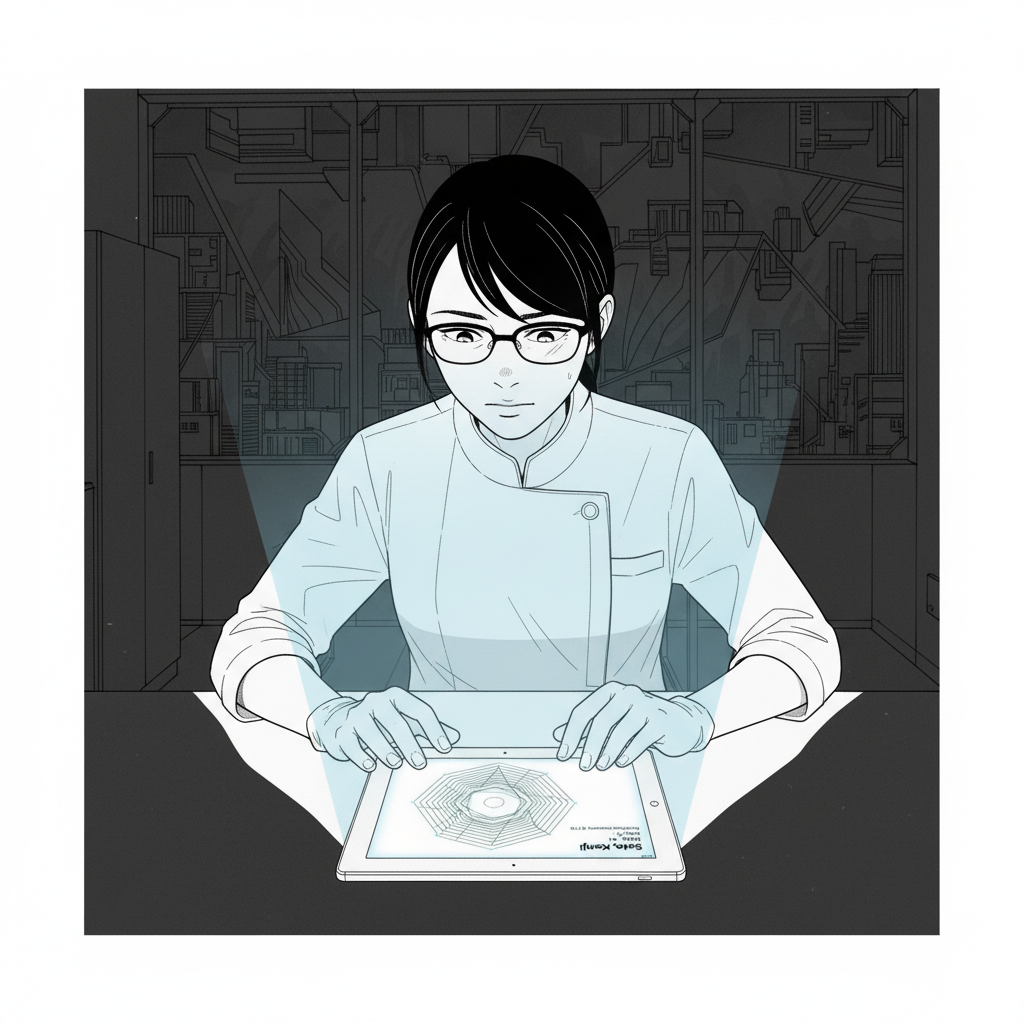
The scan results glow on her tablet. High concentration on the interior doorframe, degrading but detectable. She'd reviewed this file yesterday. Had she touched the screen after sterilization? One careless moment after 1,847 days?
The memory flickers—
You stand in the same spot, track 3, southbound platform. If they came from the opposite direction, you wouldn't see them until they reached the platform. So you wait where you can watch both stairwells. Those extra seconds of seeing them approach feel like breathing room in a world that measures everything in millimeters now.
Kenji gave her these memories. Dead six weeks, but memories persist longer than bodies—lingering on surfaces like perfume, like radiation, like love.
The Archive lists Kenji's last imprint: apartment 407, Building 6-12-8, Shin-Okubo. The doorframe where he removed his glove before dying. Memory persistence on wood: six to eight weeks. It's been six weeks, two days.
She could stop. File an incident report. Undergo exposure therapy—flood her consciousness with sterile data until his memories drown. Waiting allows integration. In three days, she won't separate his memories from hers.
But she thinks about that platform. About arriving seven minutes late for three years. Why keep arriving when the world makes arriving so hard?
She accesses Kenji's full record. Employment: resigned four years ago. Family contacts: none. Emergency contacts: one deleted entry—"requested no contact per isolation protocol." Psychiatric eval: chose isolation consciously. No depression. No psychosis. Just someone who decided touching cost too much.
Like her. She chose this. Wanted to be pure data, uncontaminated by anyone else's experiences. A control subject for her own study: what happens to consciousness when it touches nothing?
Now she knows Kenji's study. What happens when you touch nothing until you're dying, and you take off your glove one final time, and press bare palm to wood, hoping—
The memory hits like vertigo—
They came. They're here, two meters away, masked and gloved and careful. You talk about ordinary things—slow trains, whether the weather will hold, that show everyone's watching. Neither of you says I miss touching you. Neither of you says this is killing me slowly. Neither of you reaches across the gap because reaching means risking everything.
You both know this is the last time. The distance is winning.
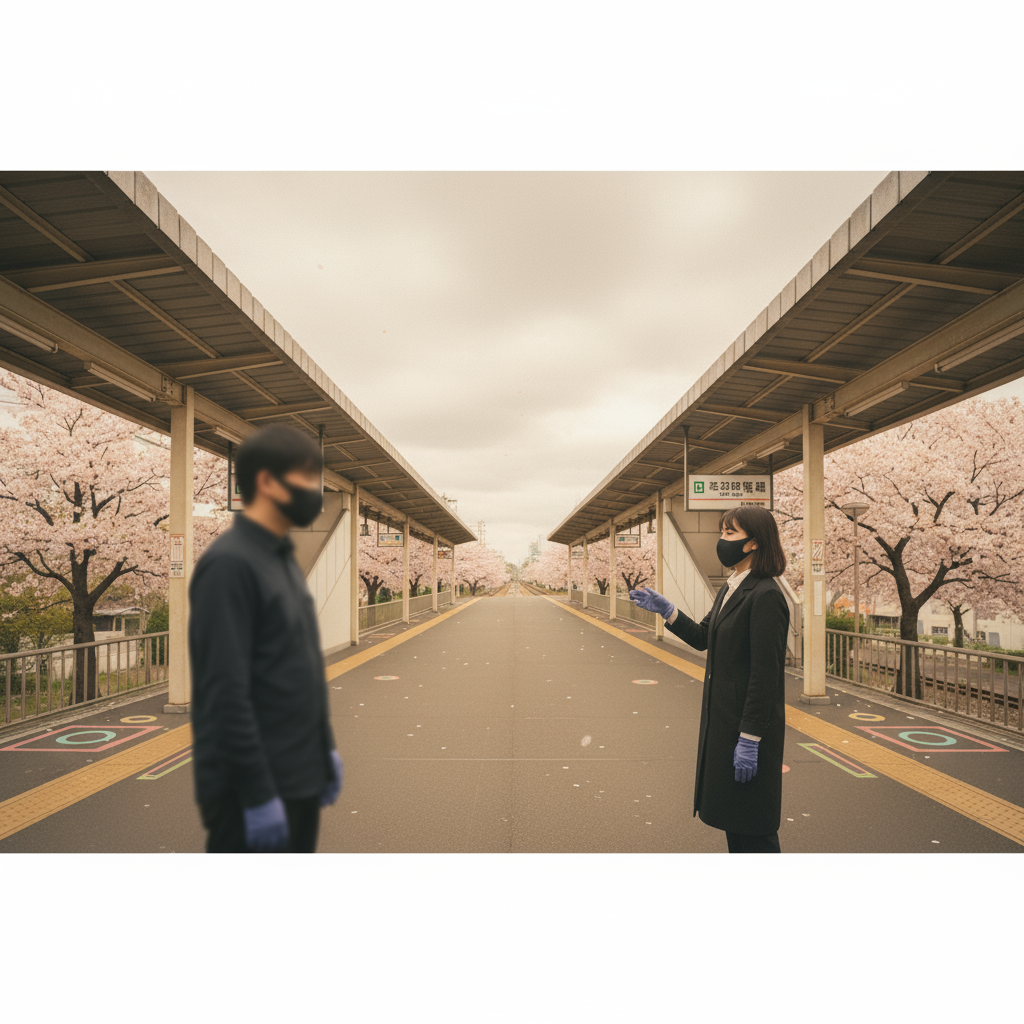
When Akane surfaces, she's crying behind her mask. Hasn't cried in five years. Wasn't in the protocol. She's compromised.
Subject's psychological stability no longer within acceptable parameters.
She takes the train. Gloved, masked, maintaining the mandatory two-meter clearance. The city has adapted. Everyone has adapted. Redesigned transit systems for this—wider doors, staggered seating, color-coded zones. Life continues, emptied of collision.
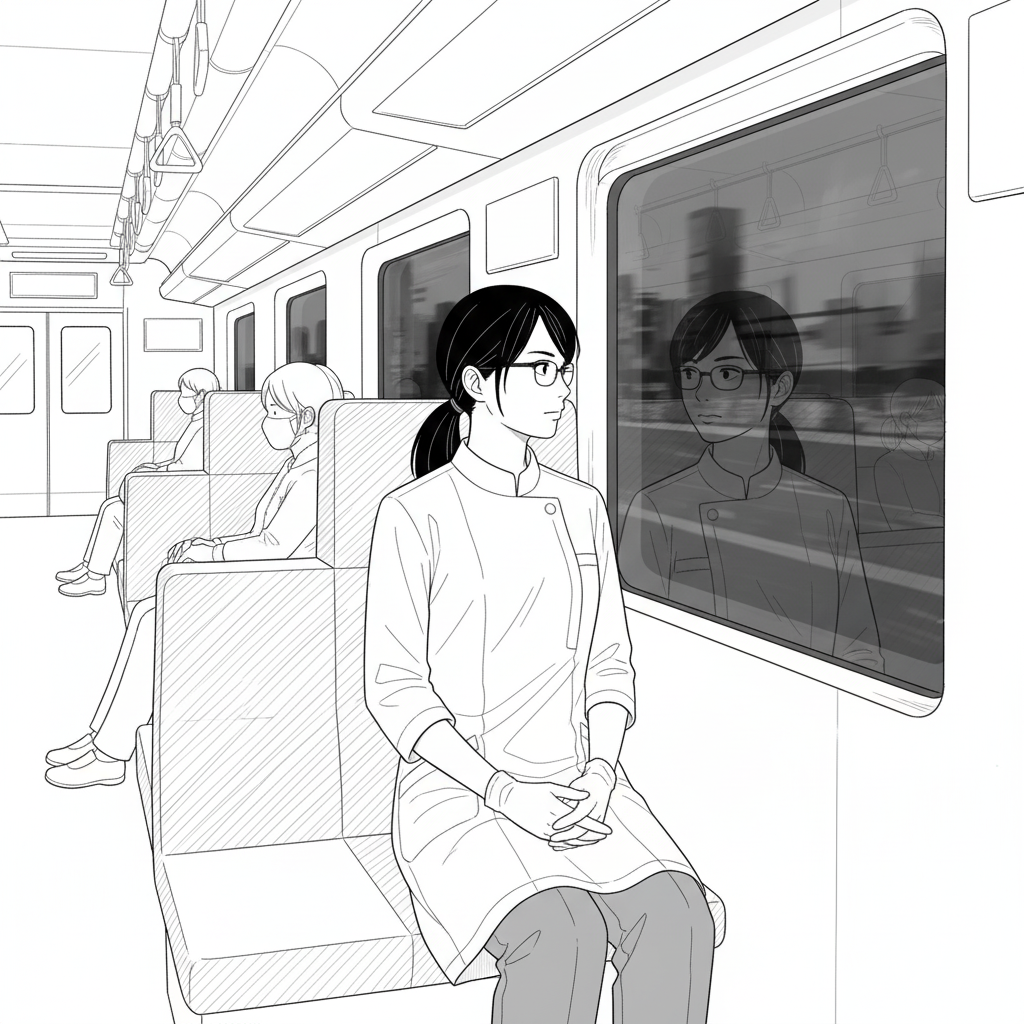
Building 6-12-8. Apartment 407. If she touched the exterior door with bare skin, she'd experience fragments. If she touched the interior frame—where he pressed his palm while dying—she'd experience everything.
The question: would experiencing everything honor his memory or violate his privacy?
The question: does she have the right to remain unknown when being known might be someone's last wish?
The question: is she here for research or because she's lonely too?
She stands outside 407, hand hovering six centimeters from the doorframe.
Subject's hand hovers between competing ethical imperatives.
Clinical language because everything else failed. She can think in measurements: six centimeters, eight weeks, 1,847 days. She can't think in meanings: loneliness, violation, witness.
Her research was always backwards. Studied isolation by isolating. Measured loneliness by eliminating variables. Documented touch by never touching. Made herself the control subject, and control subjects don't contaminate the experiment.
But Kenji contaminated her anyway. Memory infection doesn't ask consent. It spreads through invisible residue—skin cells shed, oils left behind, emotional intensity that won't dissipate. He touched this doorframe six weeks ago, hoping his lost love had left a memory there. Hoping love might persist like radiation.
He found nothing. She knows because his final memory presses into her consciousness now, even without touch—emotional intensity this high seeps through air itself. It lingers. It demands witness.
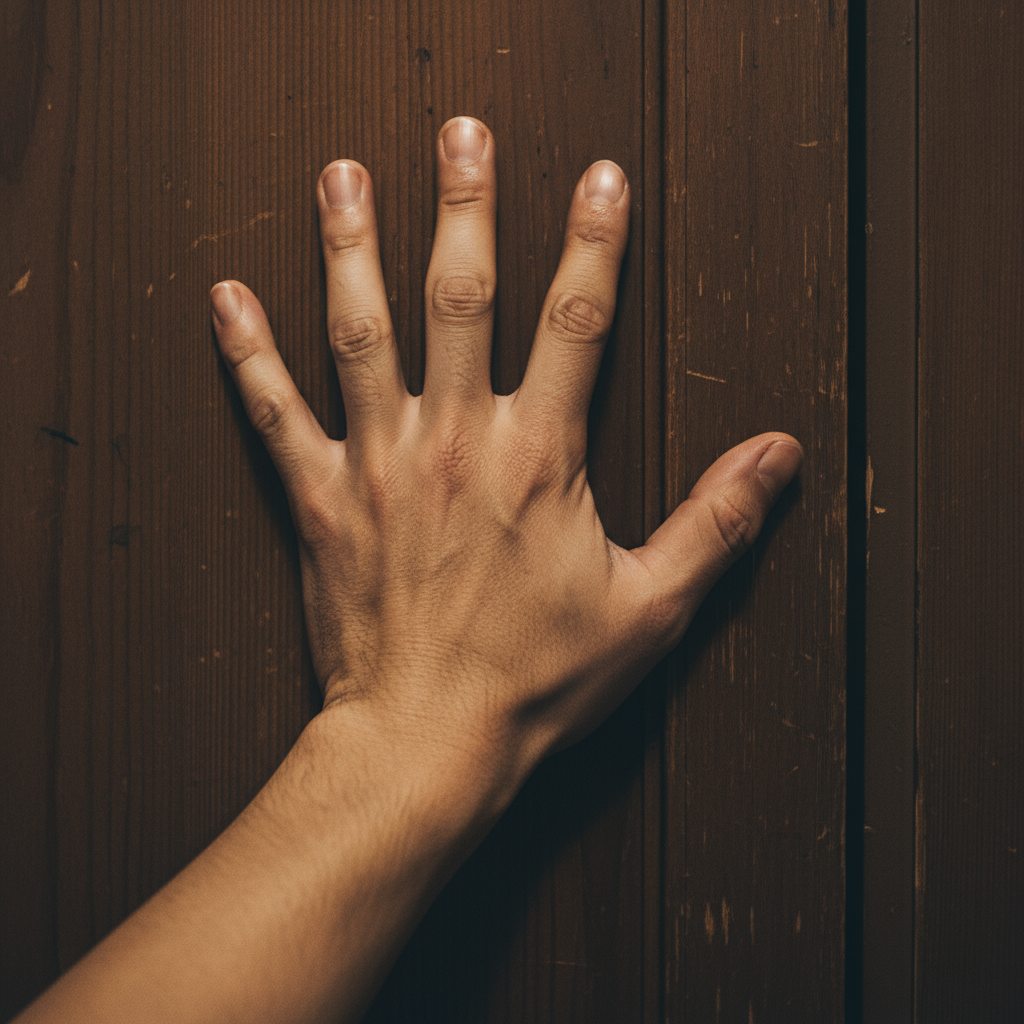
He died searching for any memory of touch. Any evidence he'd mattered. He died reaching for connection and finding only wood grain and silence and the knowledge that he'd waited too long.
She understands now. Her five-year study had one subject, one question: Can a person exist without anyone? Kenji answered by dying.
The question isn't whether we have the right to remain unknown.
The question is whether we can survive being unwitnessed.
Inside apartment 407, the doorframe carries his memory. She doesn't need Archive equipment—emotional intensity strong enough that her infected consciousness resonates with it like tuning forks. This is what memory contagion feels like at maximum saturation. What her research never captured: how another person's loneliness harmonizes with yours until you can't tell who's singing.
Her hand hovers. Six centimeters. Five. Four.
If she touches, she'll experience his death completely. Know his final thoughts, his last hope, the specific pressure of his palm on wood. Carry that moment forever, indistinguishable from her own memories.
If she doesn't touch, she honors his autonomy. Maybe he didn't want anyone experiencing his death. Maybe he removed his glove for himself, not invitation but final private act. Maybe she's here seeking absolution for her own isolation, and using his memory for that would be the ultimate violation.
She thinks about that platform. About arriving fifteen minutes early for someone who came seven minutes late. About love bleeding to death by millimeters. About how they kept arriving until they didn't.
Subject's hand—
Her hand—
She thinks about whether research is ever innocent. Whether studying something changes it. Whether her five-year isolation was data collection or cowardice. Kenji studied the same question from the inside. She's been reading his thesis written in memory fragments. The conclusion is devastating.
You can exist without anyone. But you can't exist without being witnessed. Maybe that's what he wanted—not connection, not touch, not love resurrected. Just someone to know he'd reached. Someone to document, however briefly, that Subject #1847 made contact at the end.
The Archive won't capture this. Won't measure this. Won't control for this. Some things can't be studied from the outside.
Akane breathes. Calculates. Decides.
Subject's hand moves forward.
